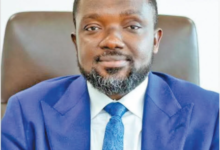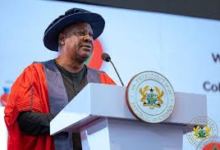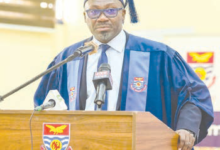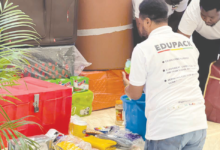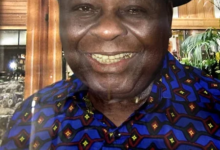
President Nana Addo Dankwa Akufo-Addo says his administration has over the past two-and-a-half years positioned the country on the path of growth and prosperity, with the future looking brighter than ever.
Having been bequeathed with an economy confronted with challenges, he said his administration, by dint of hard work and prudent management of the country’s resources, had “steered the country out of the stormy waters that had characterised the years before 2017”.
“We inherited an economy confronted with significant challenges with all the macro-economic fundamentals pointing in the wrong direction under the emergency management of the International Monetary Fund (IMF).”
Speaking at the second edition of the Ghana Diaspora Homecoming Summit in Accra yesterday, President Akufo-Addo enumerated a number of the challenges he inherited, including an economy with growth rate of 3.6 per cent, fiscal deficit of 9.3 per cent, a US$2.5 billion debt in the energy sector, erratic power supply which came to be known as ‘dumsor,’ a GH¢1.3 billion arrears in the NHIS among others.
“We have cleared all NHIS arrears and payments to service providers are now current. We have paid nearly 50 per cent of the inherited energy debt. Bold measures have been taken to sanitise the banking sector and strengthened it, with deposits of over 1.5 million Ghanaians safeguarded.”
“We are by no means out of the woods yet, but we have made significant progress with the macro-economic fundamentals now pointing in the right direction and, in the process, we concluded our exit from the IMF programme on a high note,” he said.
The President expressed his commitment to maintain fiscal discipline in the management of the country’s economy to ensure that the country did not resort to an IMF bailout again.
Ghana’s projected economic growth by the IMF as the fastest in not only Africa but the world, with a projected Gross Domestic Product (GDP) growth rate of 8.8 per cent attested to good health of the country’s economy, he said.
“Inflation is in single digits from 15.4 per cent at the end of 2016 to 9.5 per cent in April 2019. The debt to GDP ratio has declined to 54.8 per cent at the end of 2018. Interest rates are declining and so is the Bank of Ghana monetary policy rate.”
“Our balance of payment account, for the first time in more than a decade, recorded a surplus in 2017, maintained in 2018, and in the first quarter of this year, has recorded a surplus of some US$899million. We expect the trade balance to remain in surplus,” he said.
President Akufo-Addo indicated that the country, under his management, had become the leading recipient of foreign direct investment in West Africa, with some of the world’s largest companies setting up in Ghana.
He commended members of the diaspora community for their contribution to the development of the economy.
He said remittances of Ghanaians in the diaspora increased by nearly 50 per cent by US$2.2 billion in 2017 to US$3 billion in 2018 and expressed the commitment to continue to engage the diaspora community.
The Minister of Tourism, Arts and Culture, Barbara Oteng Gyasi spoke about the ‘Year of Return’ this year which commemorates 400 years since the first enslaved Africans arrived at the United States and indicated that the event would be held in collaboration with the private sector.
“Since its launch, the Year of Return has endorsed over 78 events for a year-long event and commemoration. The Ghana Diaspora Celebration and Homecoming Summit, one of the pillar activities of the Year of Return, comes at a time when the potential landscape of opportunities in Ghana is growing,” she said.
The Minister of Information, Kojo Oppong Nkrumah, said the government had been on an ambitious effort to restore macro-economic stability to bring back growth and added that agriculture, industry, and services sectors were growing steadily.
He encouraged Ghanaians in the diaspora to take advantage of the numerous opportunities available and help address some of the challenges.
BY YAW KYEI



